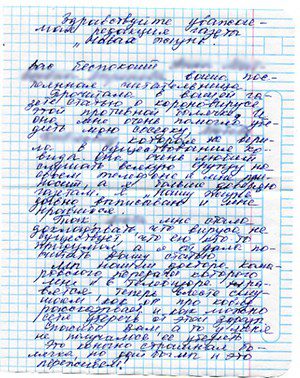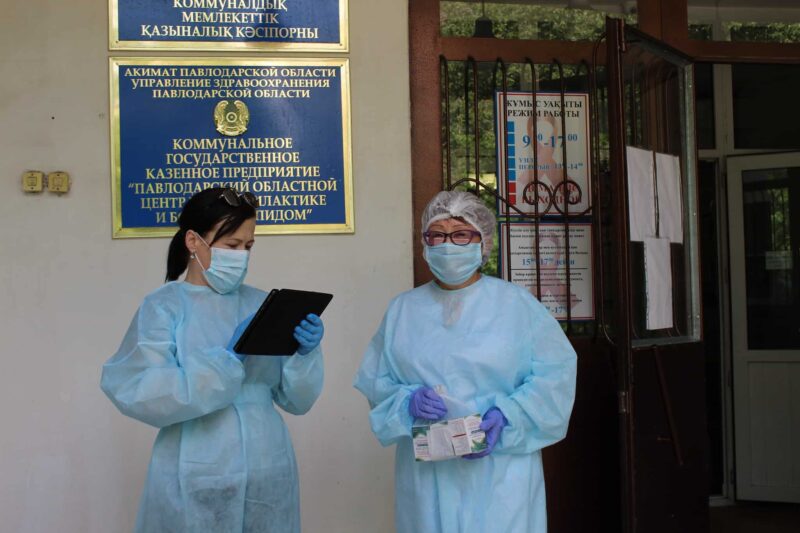It can seem impossible to counter the multitude of disinformation, misinformation, and simple rumor surrounding COVID-19. No community is immune to virus conspiracy theories. Despite the challenge, Internews and its partners remain committed to not only providing factual, reliable information, but finding ways to make it accessible, and stick in people’s minds.
In Kazakhstan, one woman went out of her way to let her local paper know their efforts were worthwhile.
Helping citizens become critical information consumers
Anna Zyranova, an elderly resident of Pavlodar, Kazakhstan, has a neighbor who was convinced that the COVID-19 pandemic was not real but was a political instrument designed to control the minds of the population. Zyranova wasn’t sure how to convince her neighbor otherwise.
Then she read an article published by the Our Life newspaper in Pavlodar, a partner of Internews. The story, titled “Vaccine from Fakes,” reported on the spike in disinformation and misinformation around COVID-19 and emphasized the importance of being a critical information consumer.

Zyranova took the story to her neighbor and together they looked up information on the Internet, reading several interviews with doctors and other experts verifying the existence of a pandemic. This persuaded the neighbor that she had been the victim of a conspiracy theory.
Our Life was pleasantly surprised to receive a hand-written “Thank you!” letter from Zyanova thanking the newspaper team for helping persuade her neighbor that COVID-19 does exist.
The article Zyranova focused on was part of Our Life’s “Trust but Verify” effort, which is supported by Internews as part of its work to counter disinformation in Central Asia. The project is funded by the European Union.
(Banner Photo: Verifying a list of patients who need the delivery of medications in Pavlodar during the COVID-19 pandemic. Photo credit: Madina Zhumataeva, Coordinator of the NGO Gerlita/USAID Central Asia/CC)
